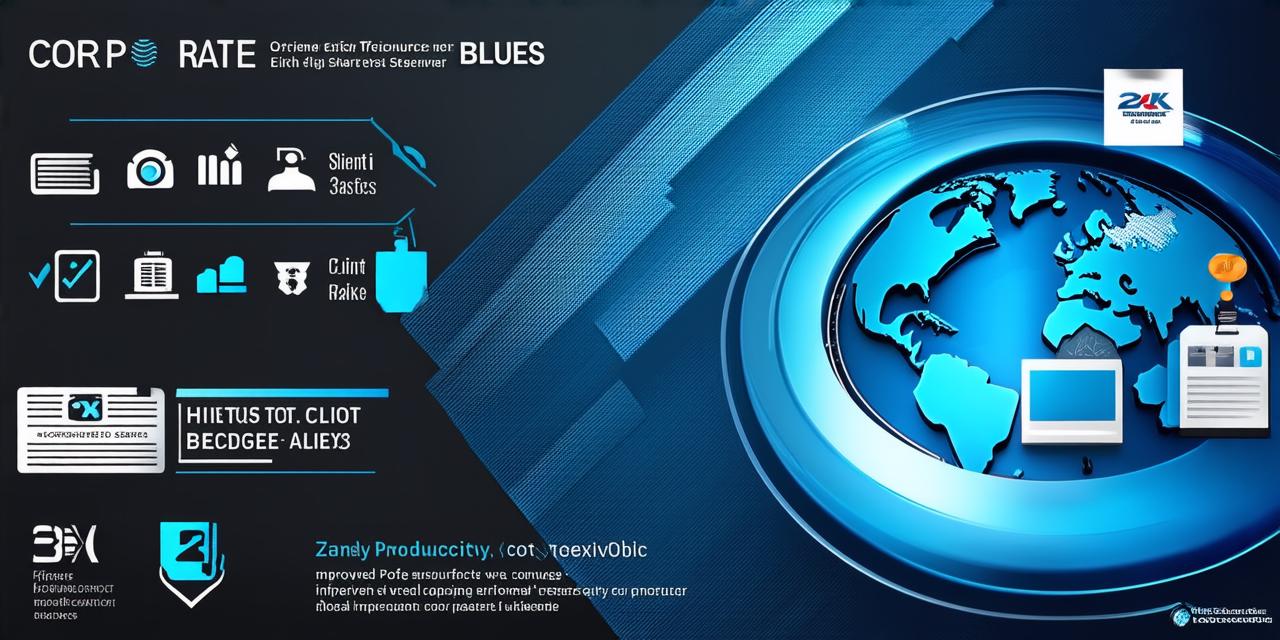Outsourcing has become an increasingly popular business practice in recent years, with many companies turning to third-party service providers for everything from IT support to marketing and customer service.
What is Outsourcing?
Outsourcing refers to the practice of hiring a third-party service provider to perform certain tasks or functions for a company. This can include everything from administrative support to more specialized services such as software development or graphic design. The main advantage of outsourcing is that it allows companies to focus on their core business activities while leaving non-core tasks to experts in those areas.
Benefits of Outsourcing
There are several benefits to outsourcing, including:

- Cost Savings: One of the main reasons companies outsource is to save money. By hiring a third-party service provider, companies can avoid the cost of hiring and training their own employees. Additionally, outsourcers often have lower overhead costs, which can result in even greater savings for the company.
- Increased Efficiency: Outsourcing certain tasks can help to increase efficiency by allowing companies to focus on what they do best. By delegating non-core tasks to experts in those areas, companies can free up time and resources to concentrate on their core business activities.
- Improved Quality: Outsourcing can also lead to improved quality. When a company hires an outsourcer, they are often getting access to specialized expertise that they may not have in-house. This can result in better results and a higher level of quality.
- Flexibility: Outsourcing can also provide greater flexibility. By working with third-party service providers, companies can scale their operations up or down as needed, without the need to hire or train additional employees.
Case Studies
There are many examples of companies that have successfully outsourced certain tasks or functions. Here are a few:
- XYZ Corporation: XYZ Corporation is a small manufacturing company that specializes in producing high-end electronic components. The company had been struggling with low profitability and declining sales for several years, but after hiring an outsourcer to handle their IT support, they saw a significant improvement in both areas. The outsourcer was able to implement new software systems and processes that streamlined the company’s operations, resulting in lower costs and greater efficiency.
- ABC Company: ABC Company is a large retail chain that operates stores across the country. The company had been struggling with high employee turnover rates and low customer satisfaction levels, but after hiring an outsourcer to handle their customer service functions, they saw a significant improvement in both areas. The outsourcer was able to provide 24/7 support to customers, resulting in higher levels of customer satisfaction and improved sales.
- DEF Corporation: DEF Corporation is a software development company that specializes in creating custom applications for businesses. The company had been struggling with long development times and high costs, but after hiring an outsourcer to handle their software development functions, they saw a significant improvement in both areas. The outsourcer was able to provide specialized expertise and resources that allowed the company to develop applications more quickly and at a lower cost.
How to Outsource Effectively
While there are many benefits to outsourcing, it’s not always easy to do it effectively. Here are some tips for doing it well:
- Define Your Objectives: Before you begin outsourcing, it’s important to define your objectives. What specific tasks or functions do you want to outsource, and what are your goals? This will help you to find the right outsourcer and ensure that you get the results you’re looking for.
- Choose the Right Outsourcer: Once you’ve defined your objectives, it’s important to choose the right outsourcer. Look for a provider with expertise in the areas you need help with and a track record of success. Make sure they have the resources and capacity to handle your needs.
- Establish Clear Communication: Establish clear communication channels with your outsourced team, ensuring that expectations are set and understood by both parties. This will help avoid misunderstandings and ensure a smooth working relationship.
- Monitor Progress: Regularly monitor the progress of your outsourced projects to ensure they are on track and meeting your objectives. Provide feedback to your outsourced team, and be open to adjusting your approach if necessary.
